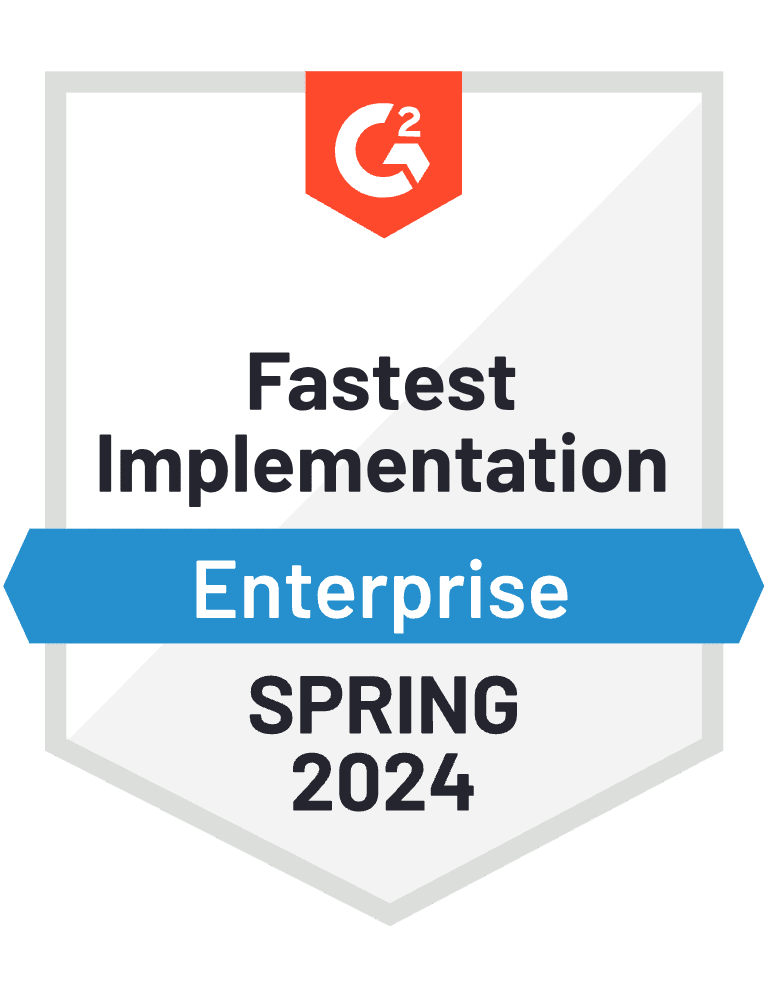It’s no secret that responding to an RFP in a cohesive and engaging way can be a herculean effort. And on top of what can be an already challenging endeavor, creating a winning RFP can come with unnecessary, often avoidable complications.
Thoughtful content management can solve a lot of these problems, but the trick is being proactive about managing your content library. Follow these 5 steps below and you will see your team take a sigh of relief when they realize deals are easier to close, upsell, or renew-all in a fraction of the time it used to take.
Why all the emphasis on content libraries? Because your content library is your single source of truth and your base of operations. When organized effectively, a centralized content library makes it simple for your team to find the information they need with just a few clicks. A dynamic RFP content library only further helps to increase efficiency, and free up space and time to spend on other business processes.
Knowing how to better manage your content will enable your team to be more impactful. Practice these 5 steps you can take to streamline your documents, close more deals, and shorten your sales cycle.
- Assign roles and responsibilities to your RFP team
- Establish an RFP content workflow process with your team
- Organize your RFP response and projects
- Keep content up to date
- Plan for the future
1) Assign roles and responsibilities to your RFP team
You have your team already, but a successful content management strategy begins with defining your RFP team. Who does what? Are there any gaps? Identifying your stakeholders early in the process will mean fewer revisions to your process down the road-all your bases will be covered and there will be no last-minute triaging to solve unforeseen issues.
- The first stakeholder you will need to identify is who you can get senior management buy-in from to support your new process. You need someone in your corner to support you and someone who recognizes how essential this strategy will be for the company’s bottom line.
- Next, you will need to identify your Administrators to help moderate workflows and ensure that the content is managed properly. This is especially important for setting permission levels. Think of your Admins as the keeper of the keys.
- Divide and conquer; have dedicated content managers who own certain content to ensure it is up-to-date and compliant. This, in turn, will not only provide you with an accurate, reliable content library but will also prevent your teammates from feeling overwhelmed by the prospect of managing an entire database of material.
- Identify your subject matter experts. Content managers can collaborate with SMEs to audit and update your team’s content library. This will ensure that your SMEs aren’t burdened by the same questions repeatedly, but are instead only bothered when essential, and are reached out to in a proactive manner to avoid chaos and stressful, last-minute requests.
Assigning roles means that each team member can take ownership of their contribution to the RFP proposal and the overall success of the team. This can flip an existing process from stressful to rewarding.
2) Establish an RFP content workflow process with your team
Be your team’s cartographer and map out a content workflow process. A content workflow process lists the tasks that each member of your team needs to perform to create and send RFP responses at volume. Be sure to involve all of your teammates for input. Documenting this process from start to finish ensures accountability while making sure no one teammate gets bogged down during the peaks in volume It also helps with onboarding new employees in the event of departmental growth or turnover by setting clear guidelines for how your team operates and why.
A typical content workflow process may be:
- Evaluate the RFP proposal to determine compliance with minimum qualifications and whether the opportunity should be pursued
- Figure out timelines and ROI
Identify and assemble all stakeholders for buy-in - Gather intel from stakeholders about the prospect and get consensus on the value proposition
- Kick-off project with the response management team
- Assign tasks/objectives to team members
- Complete the first draft using existing content
- Collaborate with SMEs for new resources, to customize content sections, and develop key strategic responses
- Internally review and revise the response
- Save finalized responses
- Deliver completed RFP
3) Organize your RFP response and projects
Leverage your RFP solution to help automate your content library management strategy.
With an RFP solution, you can easily organize your content by type — for example, marketing and sales content can be grouped and accessible by your sales or marketing teams, or technical content can be grouped and seen by your technical team. We don’t advise ever deleting content, but archiving old content that is no longer in use is essential for ensuring that your team pulls the most up-to-date material.
A pristine content library makes it easy to find the content you need when you need it. Best practices like tagging will help search and locate needed material quickly.
RocketDocs makes it easy to store, share, and access documents at any time, from anywhere. Organize your content by library and content type to better filter, find, and report on content.
4) Keep content up to date
Your RFP response process is only as good as your content library. No matter how prepared your team is to respond to an RFP, if your content is not up to date, they will revert back to pestering SMEs for updated info, falling back onto last-minute requests, and digging through collateral to find adequate responses. Your process will crumble into chaos (a bit dramatic, right?).
Be proactive, and keep your content accurate and up to date with regular audits. Maintaining an accurate content library enables your team to quickly respond to RFPs and stick to deadlines. How often should you update content, you might ask? Well, that depends. Some materials you might assign to content managers with expiration dates every month, quarter, or year.
Audit your content library to:
- Sniff out outdated information and technical inaccuracies
- Identify if new assets are needed
- Make sure responses are tagged appropriately
- Ensure language and tone is consistent, readable, and impactful
- Archive outdated materials
Effective RFP content management ensures that the best version of your content is ready before a proposal arrives.
Workflow management is key to a successful RFP. RocketDocs collaboration feature allows proposal managers and subject matter experts to effectively communicate. Subject matter experts play a critical role in defining RFP responses. SME’s can offer their expertise and stay informed on key matters within RocketDocs.
5) Plan for the future
Ask yourself, if you or a member of your team were to get hit by the proverbial turnip truck, would your process deteriorate and leave unsurmountable gaps to fill? Team members come and go, this is a challenge you will constantly face. Organizations evolve, teammates get promoted or leave for other opportunities (hopefully none actually get hit by a turnip truck), but you will still have the same task ahead of you; complete a ton of RFPs in an unreasonable amount of time, with zero margins for error. So, do yourself a favor and don’t get stuck when your RFP content manager moves on. Make sure that your RFP team is trained and comfortable with your content strategy process. Have everyone trained in your workflow process and best practices to safeguard against unexpected absences and organizational shifts. This will also alleviate other team members from feeling overburdened and undertrained.
Bonus! Organize your RFP content library with RocketDocs
We’re the market’s only Collaborative Response Management Platform that leverages one content library across all sales and proposal management teams. We streamline everything you could possibly need— now, and in the future. Plus, our team is made up of industry experts, many of whom were RFP writers and managers in your shoes and are here to support you and help you succeed.
Learn how RocketDocs can help give your proposals the winning edge.







